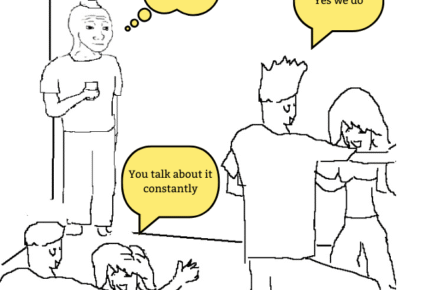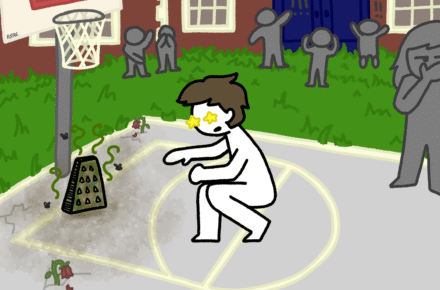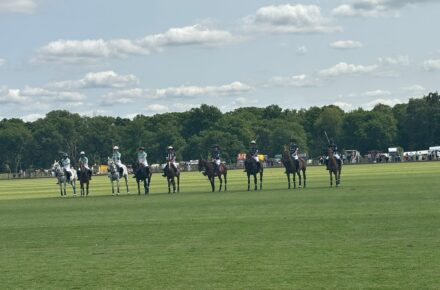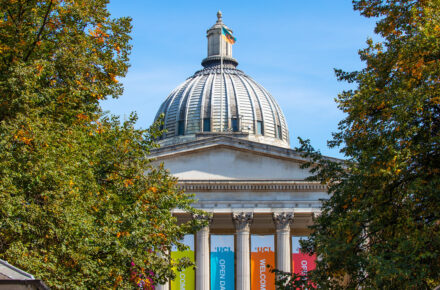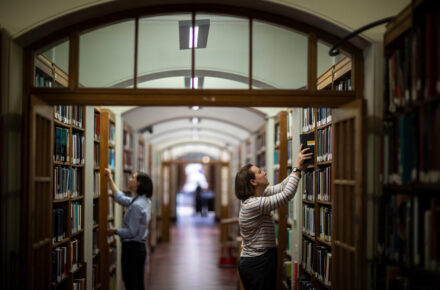
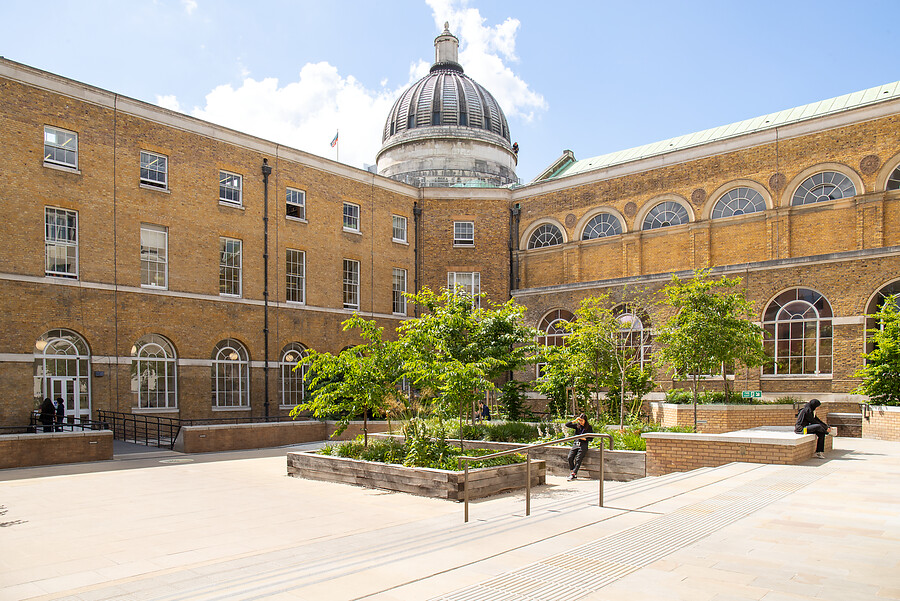
When Spring rolls around each year, every UCL student takes photos in front of cherry blossoms in the Japanese Garden. In March, these cherry blossoms will bloom once more, and create a remarkable scenery on campus. My friends and I openly joke that it was the most stunning spot in Bloomsbury. I do think the trees are beautiful, but many people know absolutely nothing about the name of a prominent imperialist engraved into the central monument of the Japanese Garden.
I decided to write this article when I discovered that the UCL blog dedicated to acknowledging the imperialism of one of the first Japanese students at UCL had vanished. Yes, UCL took it down. I was shocked – but not really too surprised. UCL glorifies the Chōshū Five – the first arriving Japanese students at UCL – and honours UCL as the site where Japan’s modernisation started more than 160 years ago. UCL monumented this historical event in the Japanese Garden, engraving the names of the Chōshū Five into a sleek monument. These engravings included Ito Hirobumi, a known constitutionalist and leading figure in the Meiji Restoration movement (1868-1889) . Hirobumi was also an imperialist who contributed to Japanese imperial expansion in the early 20th century. Hirobumi served as the resident-general of Korea soon after Japan won the Russo-Japanese War of 1904-1905, which saw Japan implement strict control over the Korean peninsula. He was one of those primarily responsible for the brutal annexation of Korea into the Japanese Empire. For Koreans, Ito Hirobumi stands at the beginning of Japanese colonial rule.
I understand the Japanese Garden and the historical event of the Chōshū Five’s arrival could be meaningful to a lot of Japanese and non-Japanese UCL students and staff. The Garden indeed commemorates the start of a relationship between the UK and Japan. In 2022, the Japanese ambassador visited the Garden to honour UCL and Japan’s “long and outstanding history.” Even though the length and depth of this history can be appreciated, I cannot stay silent. By emphasising the importance of the Garden again and again, UCL is indirectly and subtly honouring the imperial legacies of Japan. As someone from a country Japan once colonised, this is unacceptable. Considering the neo-colonialist conflicts and exploitation so pervasive around the globe, this wiping of Japan’s imperial history by UCL is abhorrent. I stayed silent before because UCL used to acknowledge the hidden imperial legacies behind the Garden. However, they are now doing quite the opposite in glorifying the history of the Chōshū Five once more.
I have mixed feelings about the Japanese Garden. Seeing the magnificent blooming of cherry blossoms is an objectively joyful experience, but, as I watch the pink leaves flow in the wind, I simultaneously think about the imperial trauma that Asian countries went through at the hands of those the Japanese Garden glorifies. When one accounts for the unresolved legacies of decolonisation and neo-colonisation tensions in the West and the world, global institutions like UCL should be more sensitive about the content they promote to the students. I think the least UCL could do is acknowledge the imperial legacies in the Japanese Garden and show its willingness to incorporate a plurality of memories into the history of college life. Indeed, even one of my Japanese classmates at UCL came up to me and questioned whether it was alright to have the names of imperialists as a monument, knowing that Ito Hirobumi invaded my country. This is a lot in and of itself, and shows that UCL must re-acknowledge Japanese imperialism on campus.


